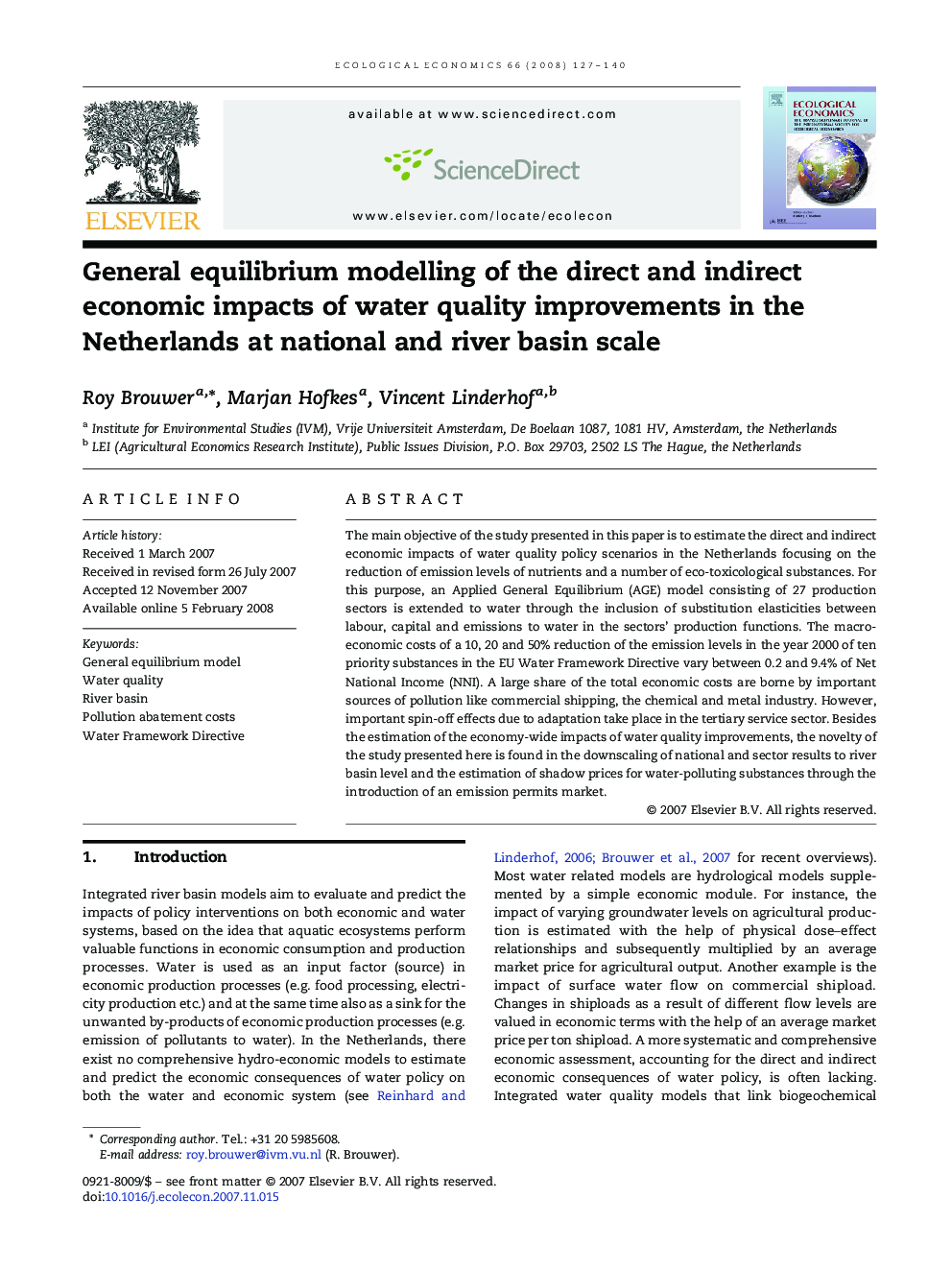| Article ID | Journal | Published Year | Pages | File Type |
|---|---|---|---|---|
| 5051760 | Ecological Economics | 2008 | 14 Pages |
The main objective of the study presented in this paper is to estimate the direct and indirect economic impacts of water quality policy scenarios in the Netherlands focusing on the reduction of emission levels of nutrients and a number of eco-toxicological substances. For this purpose, an Applied General Equilibrium (AGE) model consisting of 27 production sectors is extended to water through the inclusion of substitution elasticities between labour, capital and emissions to water in the sectors' production functions. The macro-economic costs of a 10, 20 and 50% reduction of the emission levels in the year 2000 of ten priority substances in the EU Water Framework Directive vary between 0.2 and 9.4% of Net National Income (NNI). A large share of the total economic costs are borne by important sources of pollution like commercial shipping, the chemical and metal industry. However, important spin-off effects due to adaptation take place in the tertiary service sector. Besides the estimation of the economy-wide impacts of water quality improvements, the novelty of the study presented here is found in the downscaling of national and sector results to river basin level and the estimation of shadow prices for water-polluting substances through the introduction of an emission permits market.
